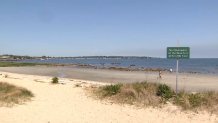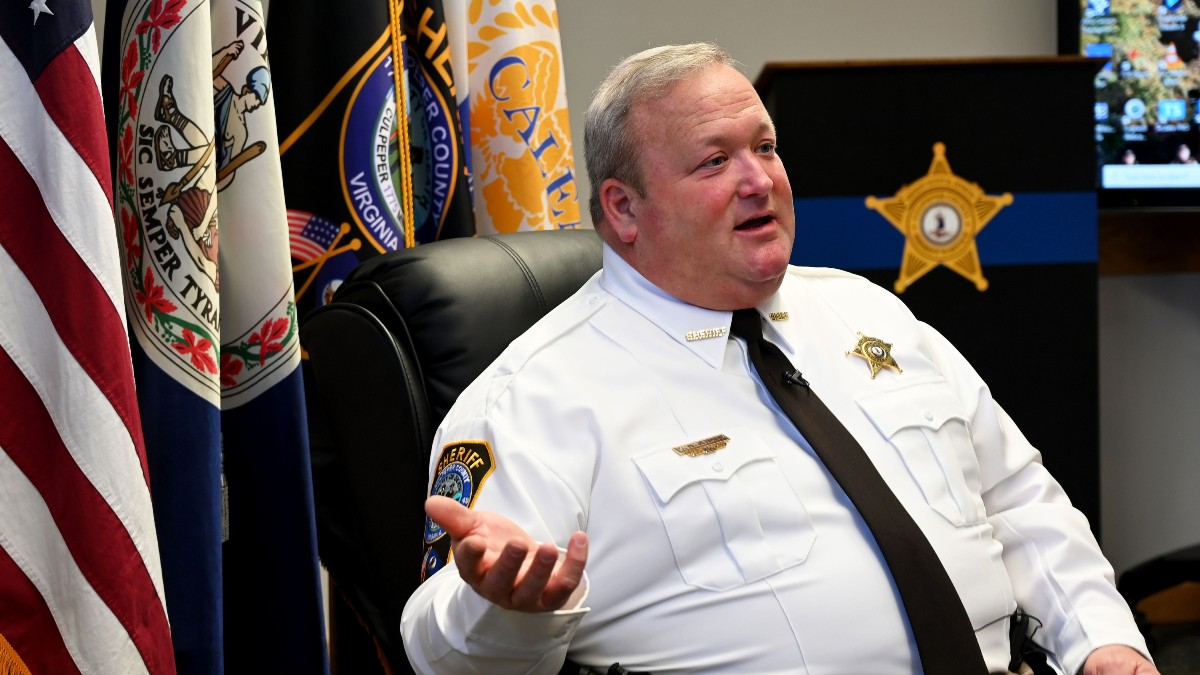Compared to many shorelines in the area, Brownie’s Beach in Calvert County, Maryland, is small. But to people like Brenden Leydon, the beach, which is currently off-limits to non-residents, represents something much bigger.
“It’s a First Amendment issue,” he said.
Leydon was refused access to Greenwich Point Park in Connecticut in the mid-1990s because it was open to residents only. A law student at the time, Leydon filed a court challenge testing the constitutional bounds of the beach ban.

We're making it easier for you to find stories that matter with our new newsletter — The 4Front. Sign up here and get news that is important for you to your inbox.
“Beaches are just a subset of parks,” he explained. “Streets and sidewalks are deemed quintessential public forums for people to communicate on whatever they want to.”
In other words, by closing off a park or a beach, he said Greenwich was violating his freedom of speech. In 2001, the Supreme Court of Connecticut agreed, issuing an opinion stating: “We conclude that such a restriction is prohibited by the First Amendment to the United States Constitution.” The court also found the restriction was in violation of several articles of the Connecticut constitution.
That's why Leydon was interested to see the News4 I-Team’s recent report about what’s happening now in Chesapeake Beach.
Investigations
Investigations by the News4 I-Team
Citing the public health emergency, town officials voted in 2020 to restrict access to Bayfront Park, which includes the less than half-acre-size Brownie’s Beach, to residents only. This year, town leaders voted to extend the ban to 2025.
But it was a comment from the local mayor, made in response to a councilman who suggested reopening the beach to tourists this year, that prompted questions over its intent.
“I’ll be the voice of the south side now. Quote-unquote: We don’t want them people down here,” Mayor Pat Mahoney said during a March meeting.
“The way that he said it, it is definitely perceived as a discriminatory term,” longtime Chesapeake Beach resident Denise Plater previously told the I-Team.
Mahoney has not responded to News4’s repeated interview requests, but video recordings show he apologized for the remark during an April town council meeting.
“To be honest and sincere, there was no malice on my part or any particular demographic group or groups targeted when I referred to non-town residents as ‘them people,’" he said.
“As mayor, I should and must be careful, mindful and responsible for what I say," he continued. "For anyone hurt, offended and the citizenry in general, I sincerely apologize and promise to do better.”
Still, former Chesapeake Beach Councilman Bob Carpenter, who now owns a travel agency in the area, worries those comments and the beach restrictions could have long-term economic impacts on the town.
“We are a town that that needs tourism. We need people coming here,” he said.
He said tourism dollars help Chesapeake Beach maintain its property.
"It's important that we have those tourist dollars, and to shut that down is going to affect us all,” he said.
In recent days, one councilman suggested revisiting the issue.
At a June 6 work session, Councilman Greg Morris asked for support in re-evaluating the policy and exploring ways to mitigate some of the complaints residents raised in prior years, which include beach crowding, lack of parking for out-of-towners and unsafe crosswalks.
In the meeting, Morris suggested a few ways to address those problems, such as by limiting the number of people on the small beach at once or by imposing access fees, as some nearby towns do.
Reached by text message this week, Morris told the I-Team that, after meeting with residents who voiced concerns the restrictions are discriminatory, he believes “there is a model that could give everyone what they want.”
Leydon, the Connecticut attorney, calls the beach restrictions “non-resident discrimination” and added the principle against the bans is important, regardless of the size of the beach.
“Legally, parks and beaches are deemed similar to streets and sidewalks. And likewise, this town has a duty to maintain streets and sidewalks,” he said. “That hardly means they can say, ‘Only our residents can drive on our streets and sidewalks.'”
The town administrator previously pointed the I-Team to its town code, charging officials with maintaining “public parks, gardens, playgrounds, and other recreational facilities and programs to promote the health, welfare, and enjoyment of the inhabitants of the town.”
Similarly, according to the Supreme Court of Connecticut ruling in Leydon's case, Greenwich had argued a 1919 special act authorizing the town to “establish, maintain and conduct public parks [and] bathing beaches for the use of the inhabitants of [the ] town” meant “for the exclusive use of its residents.” The state Supreme Court sided with a lower court, however, in rejecting that argument.
Like many experts the I-Team interviewed, Leydon also said it's hard to ignore the role race has played in beach access battles across the country, saying many cases he’s reviewed involve “white enclaves near other urban, diverse areas that seem to suddenly need to protect the environment ... One wonders what the real motivation is.”
Fighting the beach access case in Connecticut took Leydon seven years and thousands of hours, a fight he said people shouldn't have to undertake.
“I think people should just relax and enjoy the beach,” he said.
The I-Team sent multiple requests for comment to the town administrator regarding the Greenwich case and what it could mean for the Chesapeake Beach restrictions but did not receive a reply.
In the meantime, Plater has begun an online petition to re-open Brownie’s Beach to outsiders, though a search of Maryland court records indicates no legal challenges against the Bayfront Park restrictions have been filed.
This story was reported by Tracee Wilkins and Katie Leslie; produced by Katie Leslie, and shot and edited by Jeff Piper. NBC New York photographer Will Caldwell contributed to this report.



